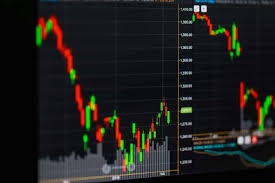
In the fast-paced world of finance, trading forex online Jordan Brokers stands out as a key player in online forex trading. As more individuals turn their attention towards currency trading, understanding the nuances of the forex market has never been more crucial.
Understanding Forex Trading
Forex trading, or foreign exchange trading, involves buying and selling currency pairs with the aim of making a profit. The forex market is the largest financial market in the world, surpassing even the stock market in terms of trading volume. Every day, trillions of dollars are exchanged, reflecting a continuous interaction between buyers and sellers at various global locations.
The Basics of Currency Pairs
In forex trading, currencies are traded in pairs. For instance, the EUR/USD is one of the most common currency pairs, representing the euro against the U.S. dollar. The first currency in a pair is known as the base currency, while the second one is called the quote currency. Understanding how these pairs work is fundamental for anyone looking to trade successfully. A trader will buy a currency pair when they believe the base currency will strengthen against the quote currency, and sell it when they expect the opposite.
Types of Forex Market Participants
Forex participants can be categorized into various types, including:
- Central Banks: These institutions manage a country’s currency, money supply, and interest rates and often intervene in the forex market to stabilize or increase their currency’s value.
- Commercial Banks: Large banks engage in forex trading on behalf of their clients and for their own profit.
- Investment Firms: These firms trade currencies as part of their broader investment strategy.
- Retail Traders: Individuals who trade currencies online, often through brokers.

Choosing a Forex Broker
One of the crucial steps in starting forex trading is choosing the right broker. The right broker can provide you with a reliable trading platform, educational resources, and insightful market analysis. Factors to consider when selecting a broker include:
- Regulation: Ensure that the broker is regulated by a reputable authority to avoid scams and ensure trading safety.
- Trading Platform: Look for a user-friendly platform with advanced charting tools and features.
- Leverage Options: Check the available leverage options as they can amplify both profits and losses.
- Customer Support: Good customer service is essential for addressing any issues or queries that may arise.

Developing a Trading Strategy
Successful forex trading requires a well-thought-out strategy. Here are some popular trading strategies that traders can employ:
- Scalping: This strategy involves making dozens or even hundreds of trades in a single day, taking advantage of small price movements.
- Day Trading: Day traders open and close their positions within the same trading day, avoiding overnight risks.
- Swing Trading: This approach focuses on taking advantage of price swings in the market, holding positions for several days to weeks.
- Position Trading: Long-term traders hold their positions for months or even years, based on fundamental market trends.
Risk Management in Forex Trading
Risk management is vital to any successful trading strategy. It refers to the practices that traders use to minimize their exposure to losses. Here are some key aspects of risk management in forex trading:
- Setting Stop-Loss Orders: A stop-loss order automatically closes a trade at a predetermined price level to limit potential losses.
- Position Sizing: Determine what percentage of your trading capital you are willing to risk on any single trade.
- Diversification: Spread your investments across various currency pairs to reduce the impact of any single loss.
Technical Analysis in Forex Trading
Technical analysis involves analyzing price charts and historical data to make informed trading decisions. Traders use various tools, including indicators and chart patterns, to forecast future price movements. Some popular indicators include:
- Moving Averages: These indicators help smooth out price data, making it easier to identify trends.
- Relative Strength Index (RSI): This momentum oscillator measures the speed and change of price movements.
- Bollinger Bands: These bands provide insights into price volatility, helping traders identify potential market reversals.
Fundamental Analysis in Forex Trading
While technical analysis focuses on price movements, fundamental analysis examines economic indicators, news events, and geopolitical situations that might affect currency values. Key economic reports include:
- Gross Domestic Product (GDP): Indicates the economic performance of a country.
- Employment Reports: Provide insight into job growth and unemployment rates.
- Inflation Data: Inflation levels can significantly impact currency value.
The Importance of Continuous Learning
The forex market is constantly changing, and successful traders are those who adapt and learn continuously. Keeping up to date with news, economic events, and emerging trading technologies is crucial. Online courses, webinars, and trading forums can provide valuable insights and updates that enhance a trader’s knowledge base.
Conclusion
Trading forex online can be an exciting and potentially lucrative endeavor, but it is not without its challenges. Success requires a blend of knowledge, strategy, discipline, and effective risk management. By understanding the fundamentals of the market, choosing the right broker, developing a solid trading strategy, and committing to continuous learning, traders can navigate the complexities of the forex market more effectively. As you embark on your trading journey, remember that patience and persistence are key to long-term success.
